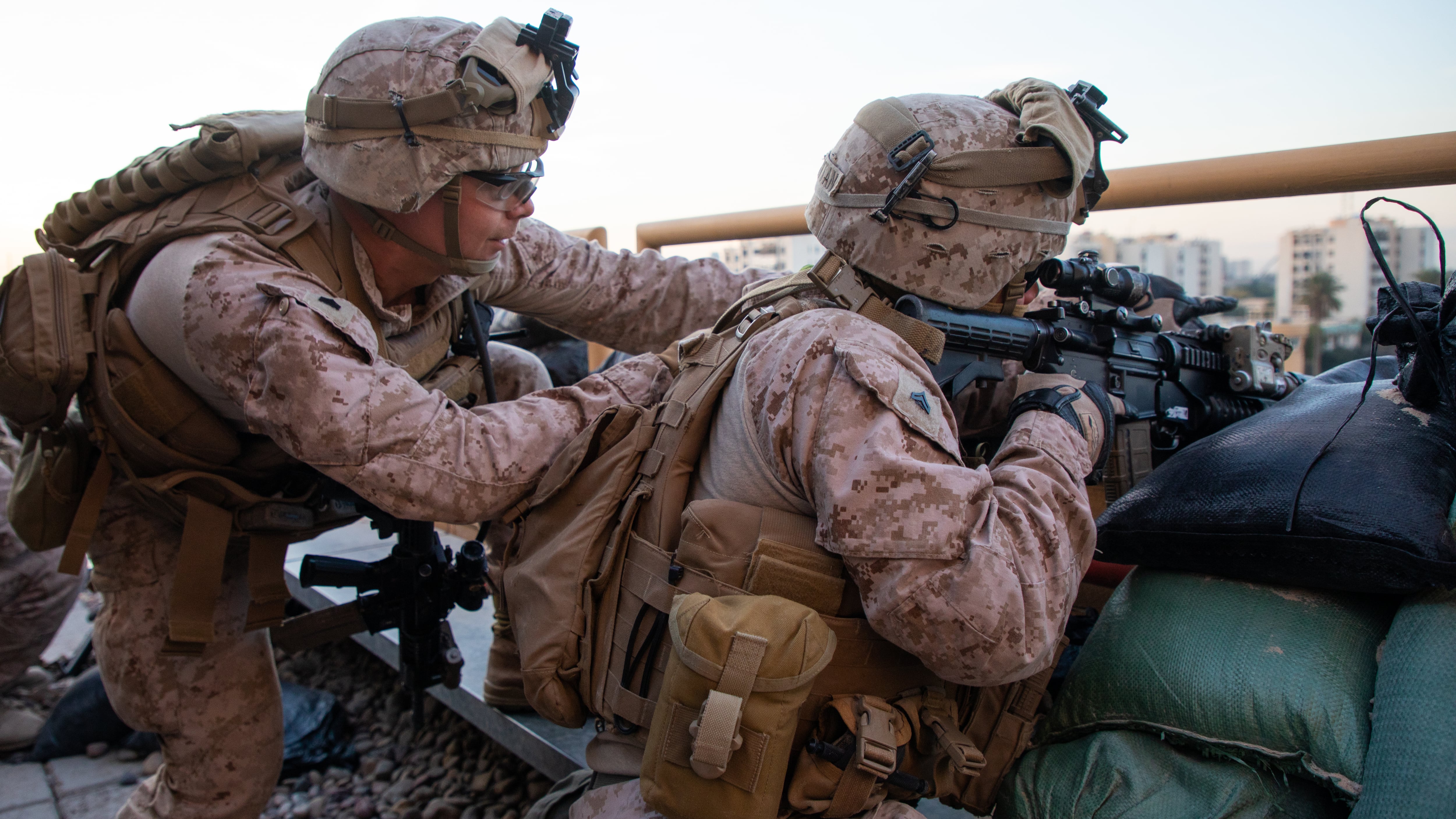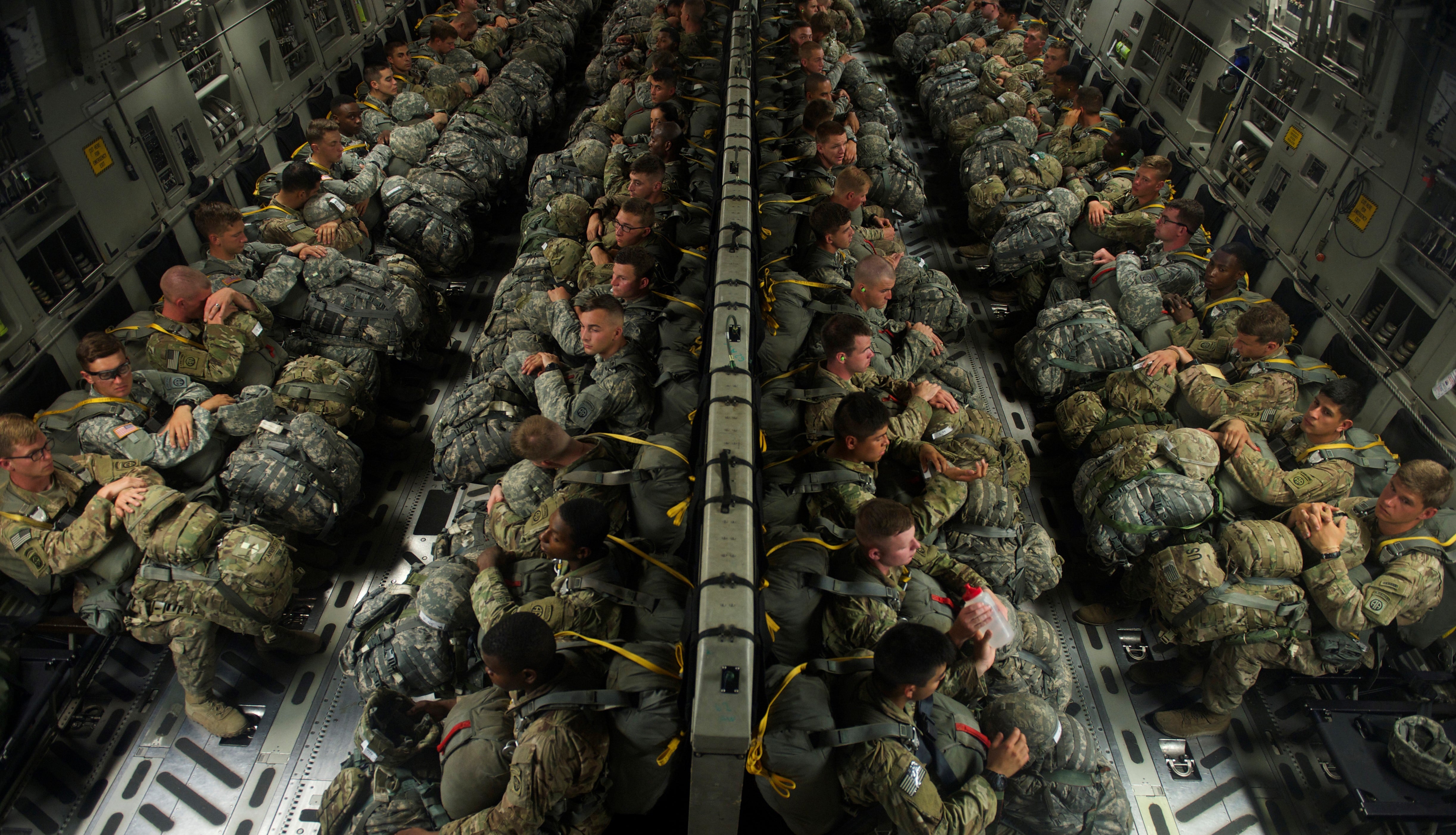One of Iran’s most revered and powerful military commanders has been killed in a U.S. strike near the Baghdad International Airport, the Pentagon confirmed Thursday.
The strike will intensify tensions between the U.S. and Iran and many experts say it escalates the risk of a new conflict spreading across the region.
“At the direction of the President, the U.S. military has taken decisive defensive action to protect U.S. personnel abroad by killing Qasem Soleimani, the head of the Iranian Revolutionary Guard Corps-Quds Force, a U.S.-designated Foreign Terrorist Organization,” the Department of Defense said in an emailed statement.
Also killed in the strike was a top Iraqi leader, Abu Mahdi al-Muhandis, the deputy commander of the Popular Mobilization Forces, which is known as the PMF and is part of a larger umbrella group that includes a number of Shia militant groups supported by Iran..
An Iraqi official, speaking on condition of anonymity, told the Associated Press that al-Muhandis had arrived to the airport in a convoy to receive Soleimani whose plane had arrived from either Lebanon or Syria. The airstrike occurred as soon as he descended from the plane to be greeted by al-Muhandis and his companions, killing them all.
The DoD said Soleimani was “actively developing plans to attack American diplomats and service members in Iraq and throughout the region. General Soleimani and his Quds Force were responsible for the deaths of hundreds of American and coalition service members and the wounding of thousands more.”
The Pentagon also said Soleimani orchestrated the Dec. 27 rocket attack on the Kirkuk military installation that resulted in the death of an American contractor and wounded four American troops.
RELATED

William Fallon, a retired admiral who ran U.S. Central Command from March 2007 to March 2008, told Military Times that Soleimani’s death is a “significant blow” to Iran.
“There is little doubt in my mind he was in Baghdad orchestrating activity,” said Fallon, who pointed to the recent attack on the U.S. embassy in Baghdad Tuesday by pro-Iranian militants. “Those were not protests, they were coordinated attacks on the embassy.”
Fallon said that while tensions between the U.S. and Iran are likely to ratchet up, he does not anticipate a full-scale war.
“It will be interesting to see how big a strike back Iran wants to try,” Fallon said, adding that he expects terror attacks and Iranian-backed militia leaders to "put on a pretty good show against the embassy."
“They have to be careful about it, as we have seen over the last six months, they are not shy,” said Fallon. “Whether it is tanker attacks, drone attacks, they will likely do something, but they will have to calculate how far they want to go.”
As far as an all-out war, “neither side really wants it,” said Fallon. “It is not in the interest of either party to do it. There is too much to lose. The Iranians have a lot of chess pieces on the table.”
Mara Karlin ― a former defense official with expertise in the region who most recently served as deputy assistant secretary of defense for strategy and force development ― noted that military officers who served in Iraq during the days when Iran was supplying arms to insurgents have a dark view of Soleimani personally.
“Don’t underestimate the hatred and vitriol that senior U.S. military officials with experience in Iraq have toward Qassem Soleimani," she said. "He has the blood of hundreds of American troops on his hands. The consequences of killing Soleimani ― the most influential Middle East military official for decades ― cannot be underestimated. ”
A U.S. State Department report estimated that Iran’s Islamic Revolutionary Guard Corps was responsible for 17 percent of all deaths of U.S. personnel in Iraq from 2003 to 2011 — roughly 603 casualties.
The strikes prompted an immediate spike in global oil prices Thursday night and set off a debate on Capitol Hill about the White House decision to launch the strike. One lawmaker applauded the killing of Soleimani and calling him “an evil bastard who murdered Americans.” Another lawmaker suggested the strike was an assassination that could cause a “massive regional war.”
The U.S. strike against Soleimani was “one of the most major counter-terror and operations and moves against the Iranians executed by any actor in decades," Phillip Smyth, a research fellow with the Washington Institute, told Military Times Thursday night.
Soleimani, as commander of Iran’s Quds force — which is tasked with carrying out paramilitary and clandestine operations outside of Iran — has lead Tehran’s irregular wars across Yemen and Syria for several years.
The Quds Force commander has been among America’s top adversaries in recent years as he has helped prop up brutal Syrian dictator Bashar Assad’s regime amid a bloody civil war that has ravaged the country since 2011.
And in Yemen, Iran has supported Houthi rebels with training and sophisticated drone and missile and anti-ship systems in their fight against the central government.
It’s unknown how Iran may retaliate against the death of its military commander who is highly revered in the country.
But researcher Kyle Orton says the U.S. may not be able to absorb what Iran throws at the U.S.
American “troops are spread too thin, and Iran’s agents too widespread," Orton told Military Times.
Orton was previously a Syria conflict expert at the Henry Jackson Society — a London-based think tank.
“If Iran makes the decision to flip the switch, I’m not sure how U.S. forces in Iraq defend themselves,” he said.
RELATED

The U.S. has deployed more than 14,000 additional troops to the Middle East throughout the past six months. There are more than 60,000 American troops in the CENTCOM theater of operations. On Tuesday, President Donald Trump ordered an additional 4,000 soldiers from the Army’s 82 Airborne Division to deploy to Kuwait to reinforce security in the region.
Thursday night, the 82nd Airborne Division announced its paratroopers had arrived in Kuwait.
“This strike and accompanying raid dealt an incredible blow to Iran’s proxy network across the entire region. They [Iran] will respond violently and likely in multiple theaters,” Jennifer Cafarella, an researcher with the Institute for the Study of War, told Military Times.
“But they [Iran] will do so deprived of key leaders and the impunity they’ve enjoyed for the last few years. Tonight’s events have likely fundamentally changed the trajectory of the region,” she explained.
In a tweet, Iranian Foreign Minister Javad Zarif called the killing of Soleimani “an act of international terrorism” that is “extremely dangerous & a foolish escalation.”
“This strike was aimed at deterring future Iranian attack plans," the DoD said Thursday evening. "The United States will continue to take all necessary action to protect our people and our interests wherever they are around the world.”
The attack came amid rising tension between the U.S. and Iran and a series of attacks and counter-strikes that intensified this week. That included a New Year’s Eve attack by Iran-backed militias on the U.S. Embassy in Baghdad. The two-day embassy attack ended Wednesday.
The breach at the embassy followed U.S. airstrikes on Sunday that killed 25 fighters of the Iran-backed militia in Iraq, the Kataeb Hezbollah. The U.S. military said the strikes were in retaliation for last week’s killing of an American contractor in a rocket attack on an Iraqi military base that the U.S. blamed on the militia.
U.S. officials have suggested they were prepared to engage in further retaliatory attacks in Iraq.
“The game has changed,” Defense Secretary Mark Esper said Thursday, telling reporters that violent acts by Iran-backed Shiite militias in Iraq — including the rocket attack on Dec. 27 that killed one American — will be met with U.S. military force.
The Associated Press contributed to this story.
Shawn Snow is the senior reporter for Marine Corps Times and a Marine Corps veteran.
Howard Altman is an award-winning editor and reporter who was previously the military reporter for the Tampa Bay Times and before that the Tampa Tribune, where he covered USCENTCOM, USSOCOM and SOF writ large among many other topics.
Aaron Mehta was deputy editor and senior Pentagon correspondent for Defense News, covering policy, strategy and acquisition at the highest levels of the Defense Department and its international partners.



